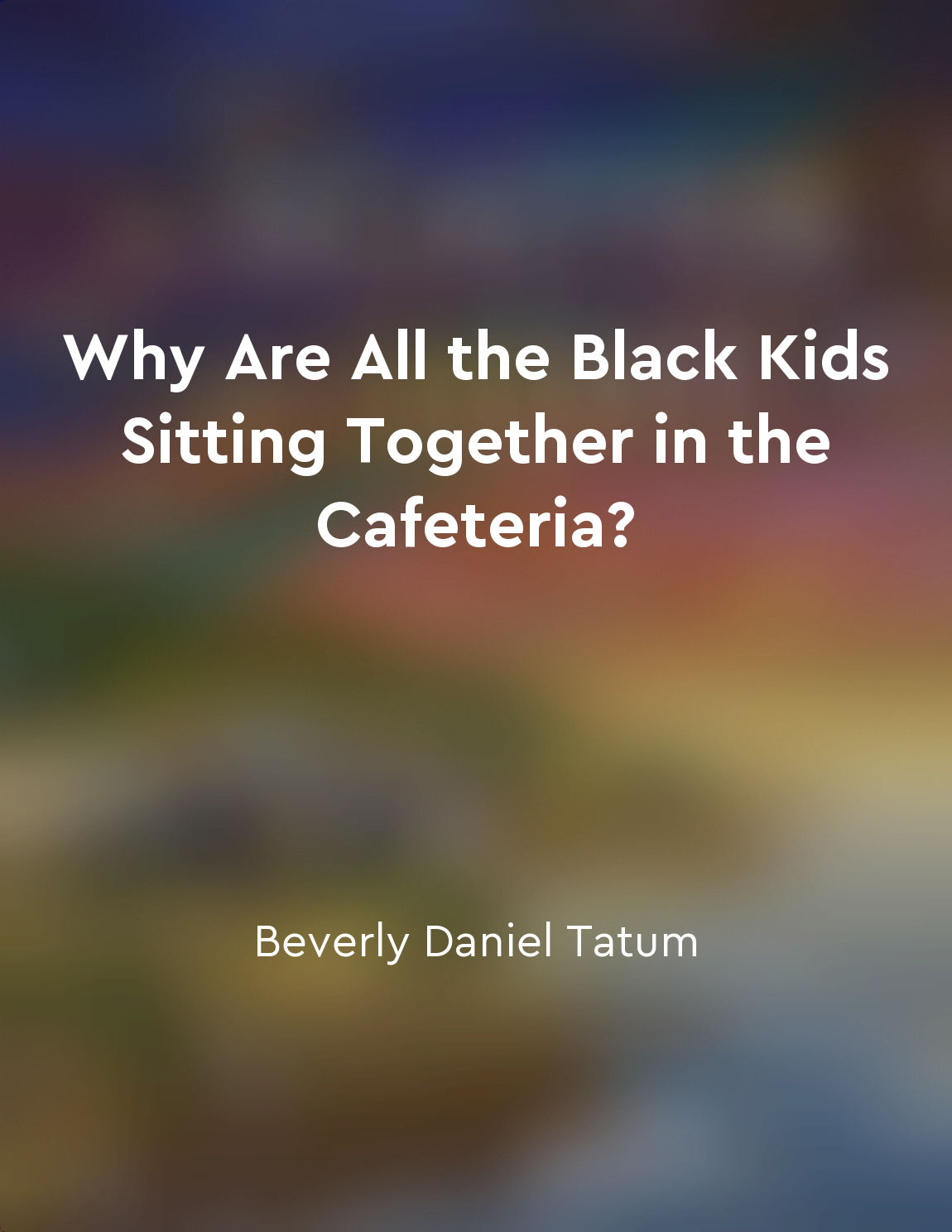The curriculum reflects dominant ideologies from "summary" of Schools and Society: A Sociological Approach to Education by Jeanne H. Ballantine,Joan Z. Spade
The curriculum reflects dominant ideologies, serving as a powerful tool for transmitting societal values and beliefs to students. These ideologies shape the content of what is taught in schools, influencing students' understanding of the world around them. By embedding dominant ideologies within the curriculum, schools reinforce the status quo and perpetuate existing power structures. Through the selection of certain subjects, topics, and perspectives, the curriculum reflects the values and beliefs of the dominant culture. For example, the emphasis on Eurocentric history in many curricula marginalizes the experiences and contributions of non-dominant groups. This not only distorts students' understanding of history but also perpetuates a biased view of the world. Furthermore, the c...Similar Posts
Communication skills enhancement
Communication skills enhancement is a crucial aspect of personal and professional development. It involves the improvement of a...
Closing knowledge gaps essential for student success
To ensure student success, it is imperative to address the knowledge gaps that exist among learners. These gaps hinder students...
Equity and access continued to be challenges
Equity and access in education remained persistent issues throughout American history. These challenges were evident in various...

Creating inclusive environments requires effort
In order to create inclusive environments, individuals must be willing to put in the necessary effort. This involves actively w...

Education empowers individuals to shape the future
Education is not just about acquiring knowledge or skills. It is about empowerment. It is about giving individuals the tools th...
Students are not taught critical thinking
The education system today often fails to teach students how to think critically. Instead of encouraging students to question i...
Fostering effective communication skills
Developing effective communication skills is essential for individuals to thrive in today's complex and interconnected world. C...
Acknowledging biases is the first step towards change
When we talk about biases, what we're really talking about is the way our minds automatically categorize and make assumptions a...
Solidarity is key to change
Solidarity is not just a nice idea or a feel-good slogan. It is a powerful force that has the potential to bring about real and...

Authentic relationships require vulnerability
To truly know someone, to understand their experiences and perspectives, requires a level of openness that can be uncomfortable...
